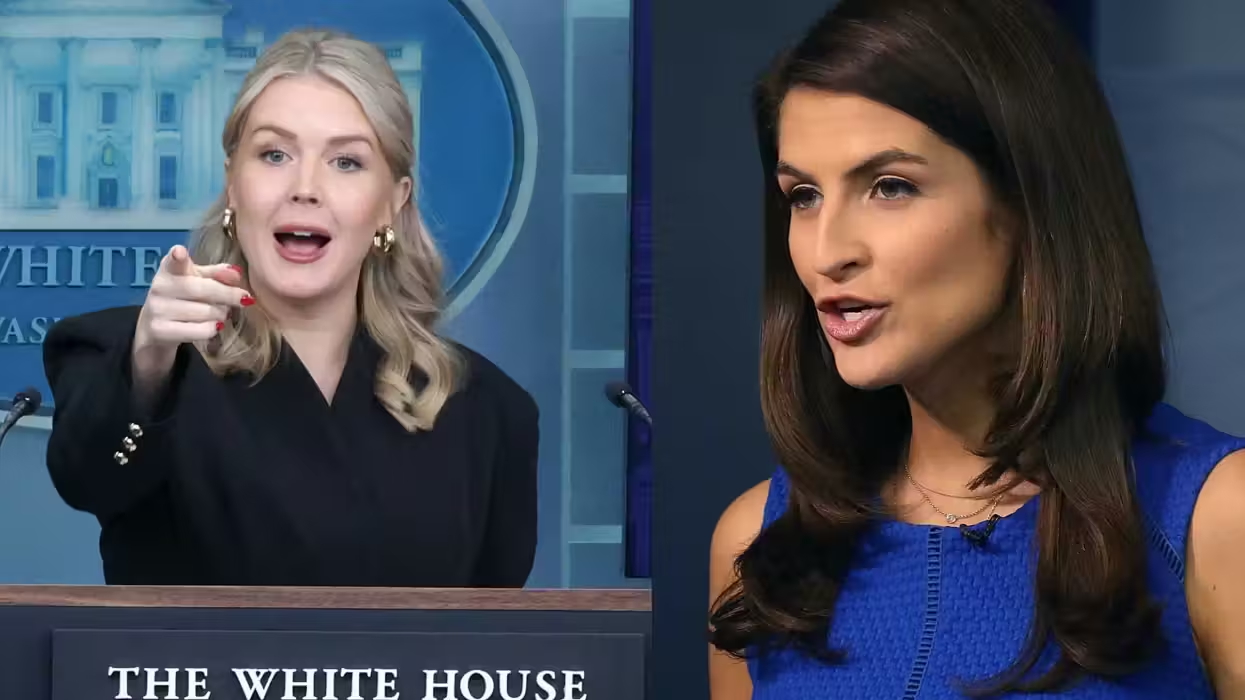
© 2025 Blaze Media LLC. All rights reserved.
The explosive admission that fake science was used in EPA-funded air pollution studies by Duke University researchers bolsters an effort by Republicans to bring honesty and transparency to the agency’s regulations.
Duke University acknowledged a scientist used fake experimental data in research studies on air pollution and lung function. Numerous published studies were retracted because of data manipulation that was either fabricated or falsified.
The scientific scandal was revealed by a whistleblower lawsuit filed by Thomas Joseph — a former research colleague of biologist Erin Potts-Kant. Joseph claimed Potts-Kant manipulated data and the information was included in published scientific reports and grant applications.
According to Joseph, the fake data was used to obtain $200 million in federal grants. The revelation that fake data was used in air pollution research supports the public policy objective of transparent science led by Representative Lamar Smith, R-Texas, Chairman of the House Science, Space, and Technology Committee.
For years, Smith questioned environmental research results on issues ranging from climate change to air pollution, and his quest to obtain the data from studies met significant resistance from the EPA and government-funded scientists.
In 2013, Smith led the effort for the House Science Committee to subpoena the EPA for the underlying data from studies that serve as the foundation of the agency’s air pollution regulations. The Science Committee also issued a subpoena to the National Oceanic and Atmospheric Administration (NOAA) for documents and emails relating to a study it published that challenged the finding of a pause in global warming.
Smith is leading the charge to ensure that EPA regulations are based on science that is transparent and reproducible, even going so far as to introduce H.R. 1430, the “Honest and Open New EPA Science Treatment Act of 2017,” which passed the House of Representatives 228-194 in March.
The HONEST Act prevents the EPA from “proposing, finalizing, or disseminating” regulations unless the underlying scientific information is publicly available. The bill would provide transparency to scientific research and allow other scientists to examine and validate the studies before the EPA could issue regulations.
A similar bill called the “Secret Science Reform Act of 2014,” passed the House in 2014 and unsurprisingly faced strong opposition from the Obama administration.
Since EPA-funded health effects studies are used to support the agency regulations that cost the industry hundreds of billions of dollars in compliance costs, it makes perfect sense to make sure the research is reproducible and most certainly not fake.
As Smith noted in the Wall Street Journal, new ozone standards being discussed at the time could cost “up to $90 billion per year in compliance costs.” Despite the enormous cost, the EPA would not reveal the underlying science that supported the regulation. Of note, the retracted studies from Duke University included research on the health effects of ozone.
But despite the common sense of supporting legislation that would ensure the accuracy and integrity of science used to justify regulations, the bill was slammed by scientists, Democrats, and their allies in the left-wing media.
A former EPA assistant administrator said the bill should be called the “(dis)Honest Act because, 'The true goal is to pay consultants to nitpick among study details to find meaningless blemishes which can then be exaggerated into allegedly fatal scars.'”
Former EPA Administrator Gina McCarthy commented, “They’re really designed to prevent us from getting the information we need to protect public health.”
Representative Bill Foster, D-Ill., also a physicist, said, “Scientists should set the standards for research. Not politicians.”
The media went all out in attacking Smith’s effort to bring sound science to the EPA. Mother Jones called the bill an “inquisition,” and the New Republic went so far as to call it a “war on science.”
The whining from the Left must not deter Republicans from supporting President Trump’s regulatory reform agenda, and The HONEST Act must go to the top of the list for Senate action.
Regulations must be based on real science, not fake science.
While there are no easy fixes for fake news, the solution for tackling fake science is making sure the underlying data is publicly available. It’s that simple.
Want to leave a tip?
We answer to you. Help keep our content free of advertisers and big tech censorship by leaving a tip today.
Want to join the conversation?
Already a subscriber?
more stories
Sign up for the Blaze newsletter
By signing up, you agree to our Privacy Policy and Terms of Use, and agree to receive content that may sometimes include advertisements. You may opt out at any time.
Related Content
© 2025 Blaze Media LLC. All rights reserved.
Get the stories that matter most delivered directly to your inbox.
By signing up, you agree to our Privacy Policy and Terms of Use, and agree to receive content that may sometimes include advertisements. You may opt out at any time.






